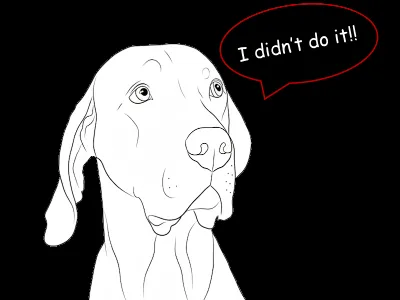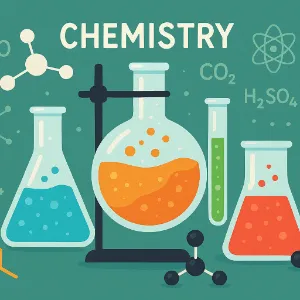 I didn't do it!!
I didn't do it!!ACCOUNTABILITY_STRATEGY
How to Stop Blame Shifting: Why Personal Accountability Matters
Understanding Accountability, Its Avoidance, and How to Build It for Better Relationships and Success
What Is Accountability?
Accountability means taking responsibility for your actions, words, and their outcomes—whether positive or negative. It’s about owning your part instead of shifting blame, making excuses, or staying silent when things go wrong.
In personal relationships, accountability builds trust. In the workplace, it fosters reliability and teamwork. On a personal level, it’s the foundation of growth and self-respect. When you hold yourself accountable, you recognize that your choices influence results—and that power allows change.
Why Do People Avoid Accountability?
Avoiding accountability is a deeply human reaction rooted in fear and self-protection. Some common reasons include:
Fear of punishment or rejection:
People worry about being criticized, shamed, or losing respect.
Ego protection:
Admitting mistakes threatens one’s self-image, especially for those who equate “being wrong” with “being weak.”
Learned behavior:
In families or workplaces where blame and punishment are the norm, people learn to deflect rather than reflect.
Lack of emotional regulation:
When shame or guilt feels overwhelming, denial feels easier than ownership.
In short, people don’t avoid accountability because they’re lazy—they avoid it because it’s uncomfortable.
What Kind of People Tend to Avoid Accountability?
-Personality Traits That Lead to Avoiding Responsibility
While anyone can avoid responsibility in stressful moments, certain patterns make it more likely:
Perfectionists:
They see mistakes as failures rather than opportunities to grow.
People-pleasers:
They fear that admitting fault will disappoint others or cause conflict.
Defensive personalities:
They feel attacked by feedback and respond with justification or blame.
Entitled individuals:
They believe the rules don’t apply to them or expect others to fix their problems.
Victim mindset types:
They consistently see themselves as powerless or wronged by circumstances.
Recognizing these traits helps you understand the emotional logic behind accountability avoidance.
Typical Behaviors That Avoid Accountability
Avoidance rarely shows up as “I refuse to be accountable.” It hides behind subtle, everyday actions like:
Blaming others:
“It’s not my fault—it’s because of them.”
Making excuses:
“I was too busy” or “You didn’t tell me clearly.”
Deflecting:
Changing the subject when confronted.
Minimizing:
“It’s not a big deal” or “Everyone does that.”
Silent withdrawal:
Avoiding conversation to escape responsibility.
Gaslighting:
Denying reality or making others question their perception.
These behaviors temporarily reduce discomfort but ultimately damage trust, relationships, and credibility.
How to Counter Avoiding Accountability (For Yourself)
-Build Personal Accountability
Accountability is a skill—and it can be learned. The key is to replace avoidance habits with self-awareness and honesty.
Here’s how to build it:
Pause before reacting.
When you feel defensive, take a breath before speaking. Notice the urge to explain or justify.
Acknowledge your part.
Even if you weren’t fully responsible, own what’s yours: “I could have communicated better” is stronger than “You misunderstood me.”
Shift from shame to curiosity.
Instead of thinking, “I messed up,” think, “What can I learn from this?”
Apologize effectively.
A true apology acknowledges impact, not just intent: “I see how my delay affected your work, and I’ll do better next time.”
Seek feedback.
Ask trusted people how you handle mistakes—and listen without defending yourself.
Follow through.
Accountability isn’t just saying sorry—it’s making changes that prevent repetition.
How to Handle Someone Who Avoids Accountability
-Strategies for Dealing with People Who Avoid Accountability
Dealing with someone who consistently avoids accountability can be draining. Whether it’s a coworker, friend, or partner, the key is to respond calmly, clearly, and strategically—without getting pulled into their deflection.
Here are proven strategies and best practices:
Stay factual and specific.
Avoid generalizations like “You never take responsibility.” Instead, say, “When the report wasn’t submitted, you said it was my fault, but it was your section that was incomplete.” Facts limit defensiveness.
Don’t argue about intent—focus on impact.
People who avoid accountability often defend their intentions (“I didn’t mean to”). Keep the focus on what actually happened and how it affected others.
Use calm, neutral language.
Emotionally charged words trigger more avoidance. Speak with measured tone: “Let’s look at what went wrong and how we can fix it.”
Set clear boundaries and expectations.
In workplaces, clarify roles and deadlines in writing. In relationships, express expectations respectfully but firmly: “I need us both to acknowledge our part when there’s a conflict.”
Avoid over-functioning.
Don’t rescue them by taking on their responsibilities. Let natural consequences unfold—it’s often the only way accountability grows.
Reinforce accountability when it appears.
When they do take responsibility, acknowledge it. Positive reinforcement encourages repetition: “I appreciate you owning that—it means a lot.”
Know when to disengage.
If someone chronically avoids responsibility and refuses to change, you may need to reduce your involvement or rethink the relationship. Protecting your peace is also accountability—to yourself.
The Power of Accountability
Accountability doesn’t weaken you—it strengthens you.
It builds integrity, deepens relationships, and accelerates personal growth. When people know you’ll own your actions, they trust you more. When you know you’ll face your choices honestly, you live with more confidence and less fear.
In the end, accountability isn’t about blame—it’s about freedom. Freedom to grow, to repair, and to become the person you want to be.
 Relationship_Guide
Relationship_Guide